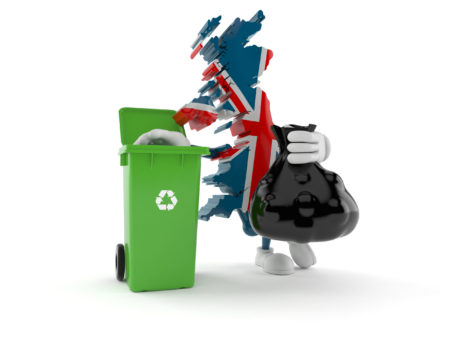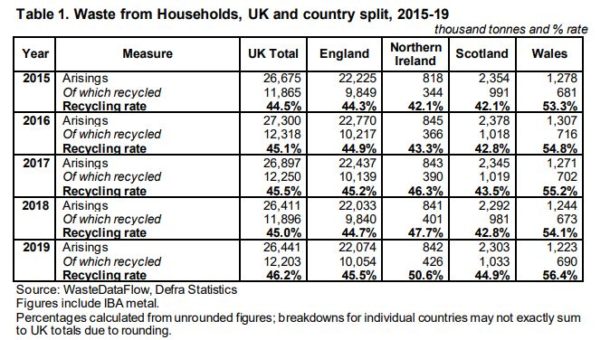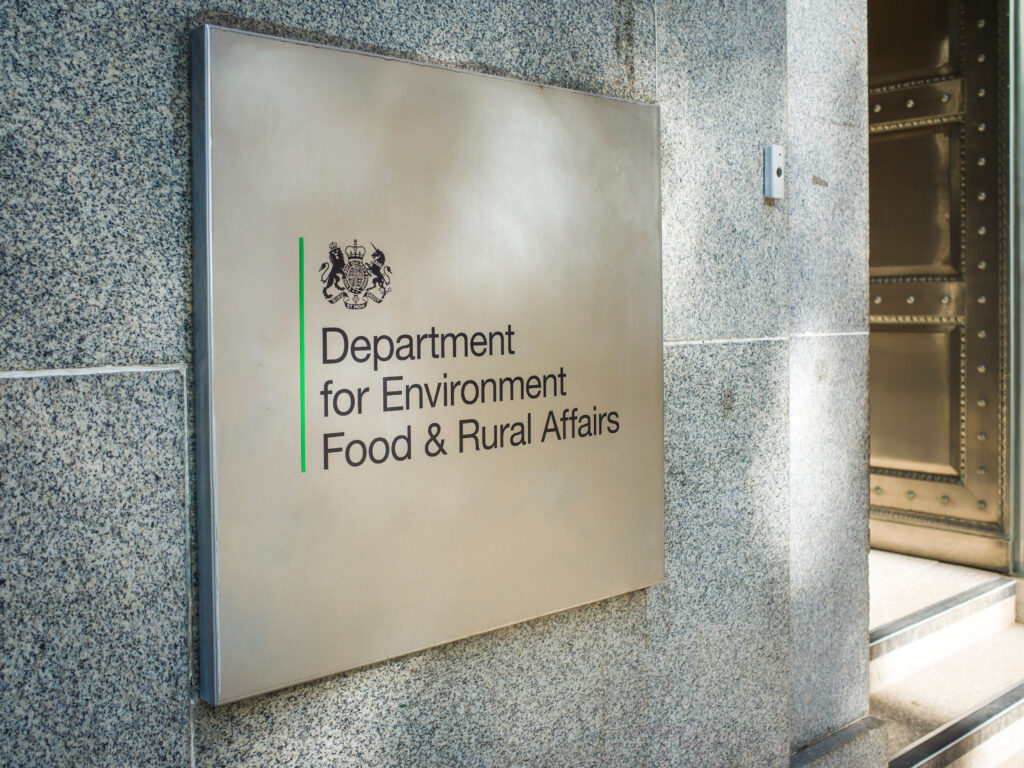Excluding IBA, England, Northern Ireland, Scotland and Wales recorded a combined rate of 45.4%, up from 44.3% in 2018.

The statistics published by Defra this morning (15 July) will be sent to the European Commission for approval, where they are subject to change. This will not be the case after the next set of figures for 2020, when the UK would have left the EU.
In 2018, the UK overall municipal rate recorded by the EU was 43.86%, which saw it ranked 11th across all member states (see letsrecycle.com story).
Rates
As outlined below, Wales recorded the highest rate in the UK with 56.4% in 2019, while Scotland was the lowest on 44.9%.

Measure
The recycling rate is calculated using the overall waste from households figure, “the agreed harmonised UK measure used to report household recycling”.
Around 26.4 million tonnes of waste was generated from households in 2019, the same as the previous year. England was responsible for 83% of this.
Landfill
Across the UK, estimates for biodegradable municipal waste (BMW) to landfill have been calculated using a UK wide approach in accordance with relevant legislation.
BMW is the fraction of municipal waste that will decompose within a landfill to produce methane, a potent greenhouse gas.
The UK sent 6.6 million tonnes of BMW to landfill in 2019, down from 7.2 million in 2018. Overall municipal waste to landfill was 13.7 million, down from 14.6 million the previous year.
Packaging
The dataset also included the UK’s packaging recycling rate for 2020.
Provisional figures for 2020 show that 67.2% of UK packaging waste was either recycled or recovered, the same as in 2019.
The recycling rate without recovery was 62.2%.
Commercial data
The data also confirmed fears that there is poor data from the commercial and industrial (C&I) waste sector. The document referred to uncertainty in gathering data.
“C&I waste generation remains extremely difficult to estimate”
It reads: “Defra has worked closely with industry experts to improve the C&I methodology for England. Nonetheless, C&I waste generation remains extremely difficult to estimate owing to data limitations and data gaps.
“As a result, C&I estimates for England have a much higher level of uncertainty than waste from households.”
The data for C&I for the whole of the UK was not included for 2019. In 2018, the UK C&I sectors generated 43.9 million tonnes of waste, of which 37.2 million tonnes (around 85%) was produced in England.
Overall
In terms of overall waste generation, including C&I, household and construction, Defra only had UK data for 2018.
This showed there were 222.2 milion tonnes of waste overall.
The below table excludes waste exported from the UK, which would work out to be around 7 million tonnes.
It shows 108.4 million (50.4%) of all waste was ‘recycled or recovered’ in 2018, the most common final waste treatment type in the UK.
Around two thirds of ‘recycling and other recovery’ is recovery of mineral wastes and soils from the construction, demolition and excavation sector.
The remainder is predominantly recycling (glass, plastic, metal, wood, composting etc.) but also includes some non-recycling activities that are not captured elsewhere including wood used for biomass.
Landfill is the second most used waste treatment in the UK, with 23.6% (50.8 million tonnes) of waste disposed of at landfill in 2018.
The majority (80%) of the roughly 15 million tonnes of waste treated at energy recovery facilities is ‘household & similar’ wastes.












Subscribe for free